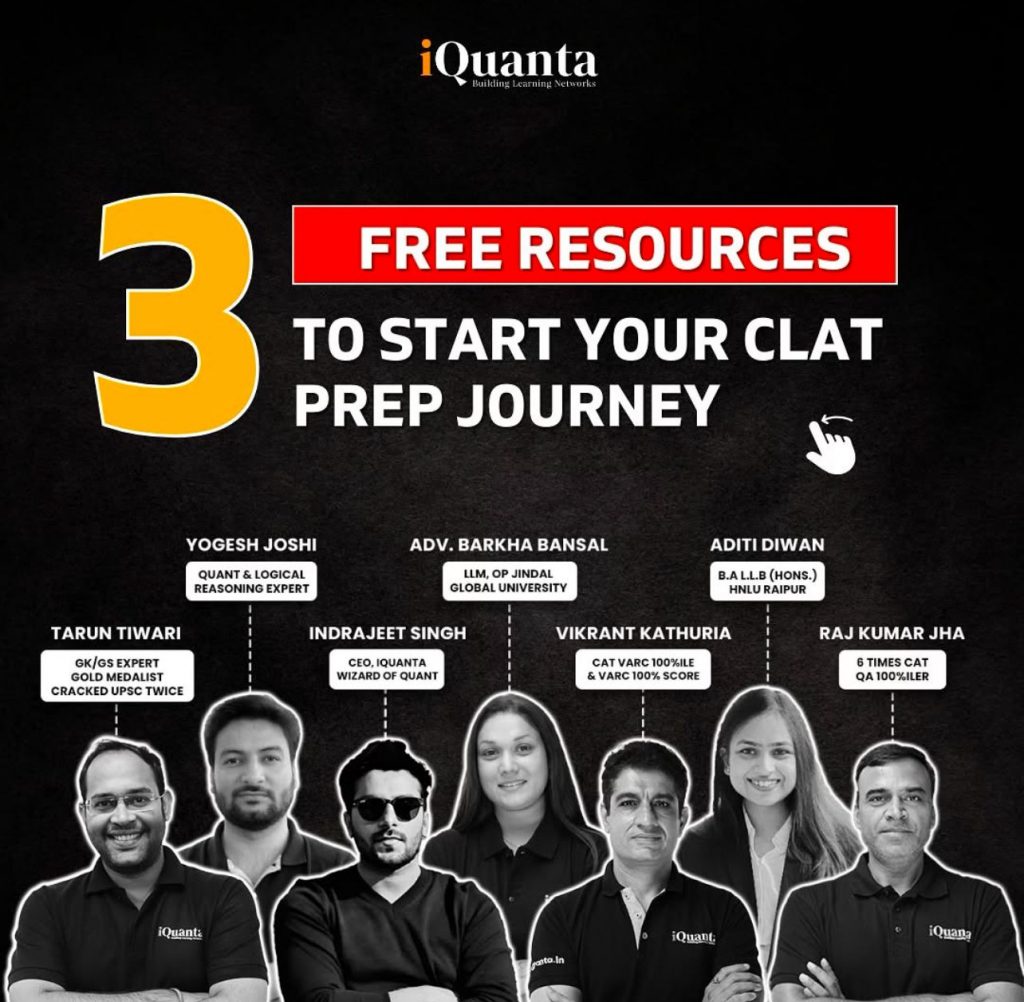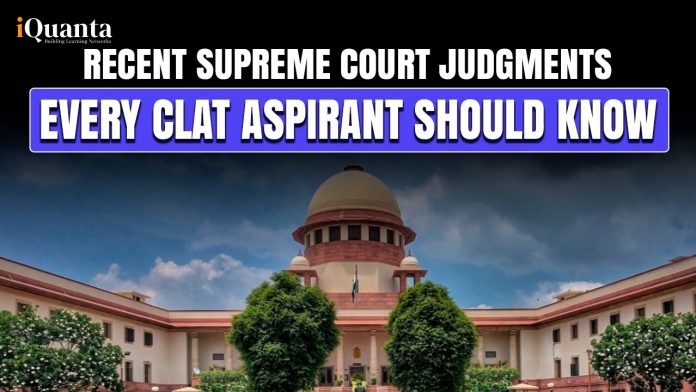The Supreme Court of India is essential in providing significant legal and constitutional judgements for the country. Every candidate preparing for the Common Law Admission Test should keep themselves updated with the recent critical Supreme Court judgments. It helps you think more like a lawyer rather than a CLAT aspirant. The legal reasoning section in the CLAT Examination requires a deep understanding of the judicial principles and recent judgments. This blog is specially designed to discuss in depth the recent contemporary developments.

Key Supreme Court Judgements
- Right to Marriage and LGBTQ+ Rights
In the year 2023, the Supreme Court understood and accepted the demand for same-sex marriage in India. During the judgment, a group of LGBTQ+ petitioners pleaded to the Supreme Court that the right to marry is a fundamental right of the citizens under the Indian Constitution and should be recognized by the government under the Special Marriage Act, 1954.
The judgment stated that same-sex couples do not have the permission to marry under the Indian constitution. However, it ensured that the government must protect LGBTQ+ couples from any kind of discrimination and violence from any individual.
This case is extremely important for the CLAT aspirants because it illustrates judicial activism and the importance of legislative action in legal reforms.
- Article 370 Verdict
The Indian government, in the year 2019, repealed Article 370, which granted special autonomy to the state of Jammu and Kashmir. This decision of the Supreme Court raised numerous challenges regarding whether the constitutional authority unilaterally revoked the article.
The judgment stated that the president has supreme power to repeal the article 370, Jammu and Kashmir have always been an integral part of the Indian Constitution, also, the parliament has direct authority over the region.
This tests the candidate’s knowledge of presidential powers and constitutional amendments. This also highlights the role of the Supreme Court in addressing politically sensitive cases.
- Demonetization Judgement
In the year 2016, the Indian government decided to demonetize the 500/- and 1000/- currency notes in the fight against the rising problem of black money. Although the process was a success, the decision raised multiple questions on the process, authority, and its impact on the economy.
The Supreme Court ruled out its judgment that the process of demonetization was constitutionally valid and the government duly followed the procedure under Section 26(2) of the RBI Act.
Candidates, after understanding the judgment, will get a clear view of the separation of powers between the judiciary and the executive. This also highlights the importance of judicial speculation over economic policies.
- Right to Privacy and Aadhaar
This was a landmark case under the Indian Constitution and underlined whether privacy is a fundamental right for the citizens or not. Multiple challenges arose among the mandatory decisions of Aadhar enrollment and data security.
The Supreme Court made its judgment that privacy is a fundamental of the citizens under Article 21. The judgment also limited the mandatory use of Aadhar only to government schemes.
Candidates can understand the importance of data protection and privacy concerns. This judgment also highlighted the power of an active judiciary in defining the rights of the citizens.
- Right to Abortion
The case was filed by a woman seeking an abortion beyond the legally permitted 24-week period due to health risks.
The Supreme Court ruled that all women, including unmarried women, have abortion rights under the Medical Termination of Pregnancy Act (MTP). This judgment was ruled out to strengthen the reproductive rights of the citizens, especially women.
Candidates can learn to explore the evolution of women’s rights in the Indian Constitution. This will test the candidates’ understanding of judicial activism in gender equality.
- SC Verdict on Freebies
The case was filed in reaction to political parties providing freebies such as free electricity, cash incentives, and household appliances as a part of their election campaigns. The petitioner raised questions that these promises did not allow a fair competition and skewed the election results.
The Supreme Court ruled out the judgment to not ban the distribution of freebies but raised a need for regulation on these practices. The election commission was left to seek a public review on this matter. The Supreme Court suggested forming a committee to oversee this matter.
Candidates learn about judicial restraint, where courts avoid interfering in certain policy matters. This judgment is relevant for debates and purposes.
- Right to Protest and Public Order
In December 2019, the Citizenship Amendment Act (CAA) triggered riots among the citizens, and Shaheen Bagh became the epicentre for all these activities. Protestors, including majorly women, jammed major roads for months, causing significant disruptions to the common people.
The Supreme Court ruled out the judgments that protests should be carried out peacefully without disturbing any public life indefinitely, also, the protests should only be carried out in designated areas to avoid any kind of disruptions. The judgment criticized both the protestors and authorities and also stated that authorities should have responded sooner.
This highlights a key theme of constitutional law for the candidates: “Fundamental rights vs public order”.This is also an extremely important topic for the legal reasoning section of the CLAT Examination.

Recent Supreme Court Judgments Every CLAT Aspirant Should Know – FAQs
All the latest and recent supreme court judgments will test the candidates’ legal reasoning and general knowledge skills. This will improve the legal and analytical skills of the candidate.
The most important topics for the CLAT Examination include topics such as Fundamental Rights and DPSP, Judicial Review and Separation of Powers and Constitutional Amendments.
Yes, the Supreme Court’s judgment can be overturned in multiple ways, such as if a larger bench is ruling or a review or a curative petition takes place.

